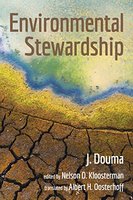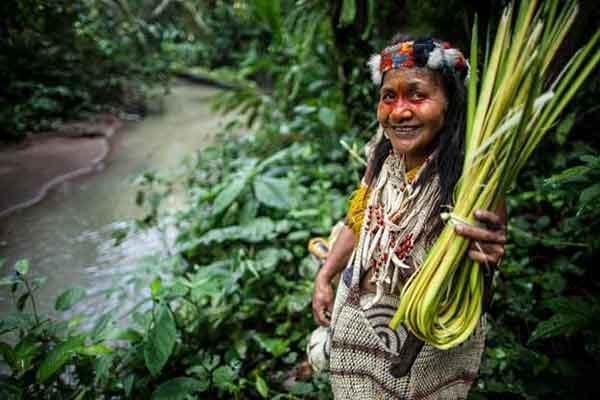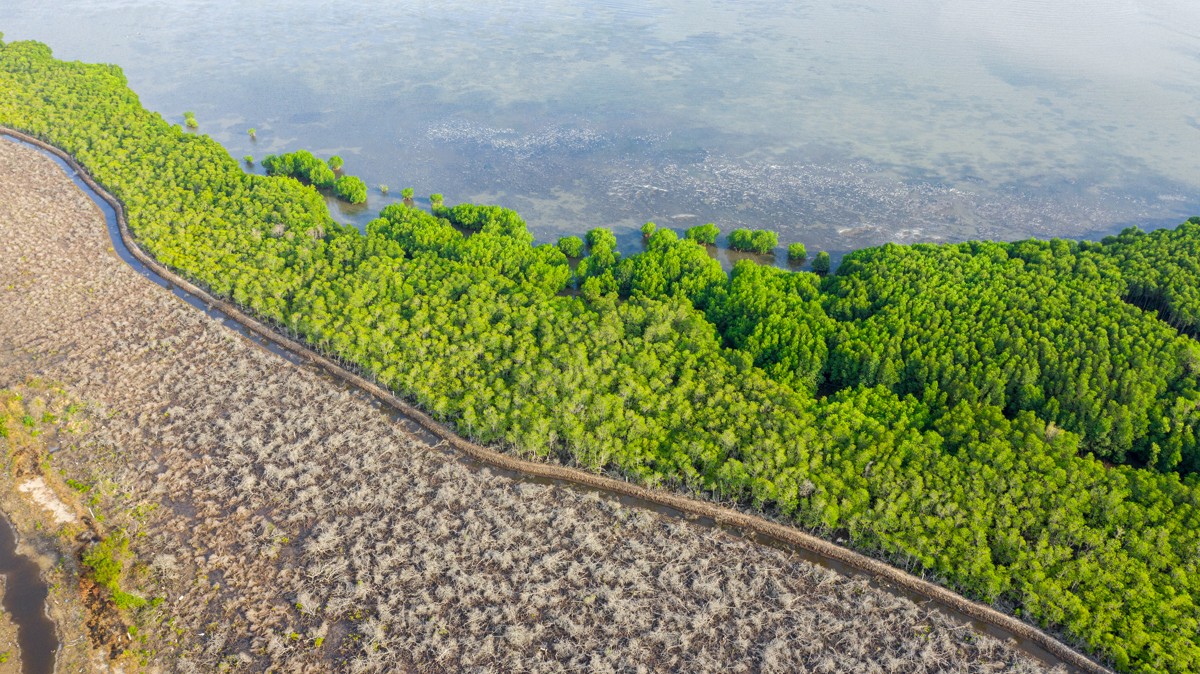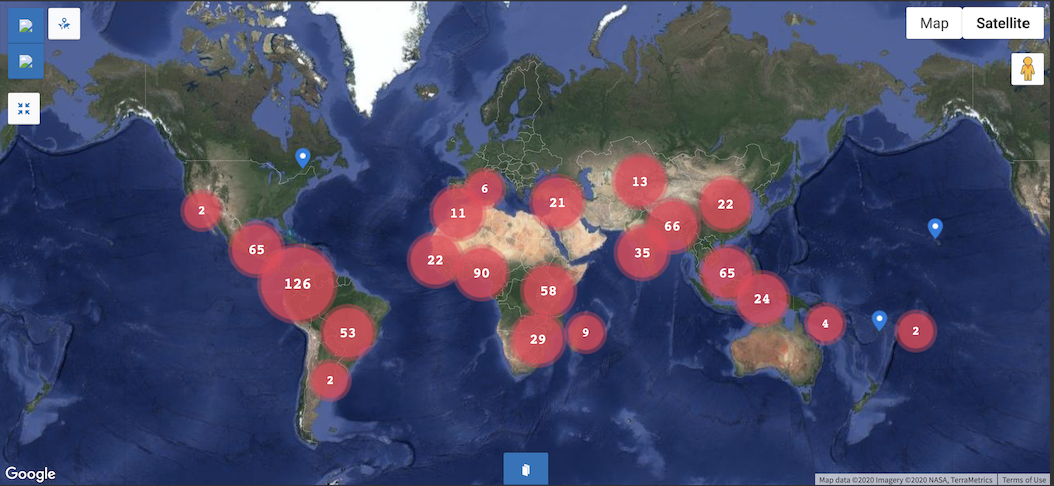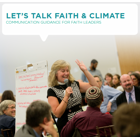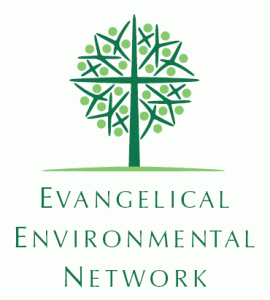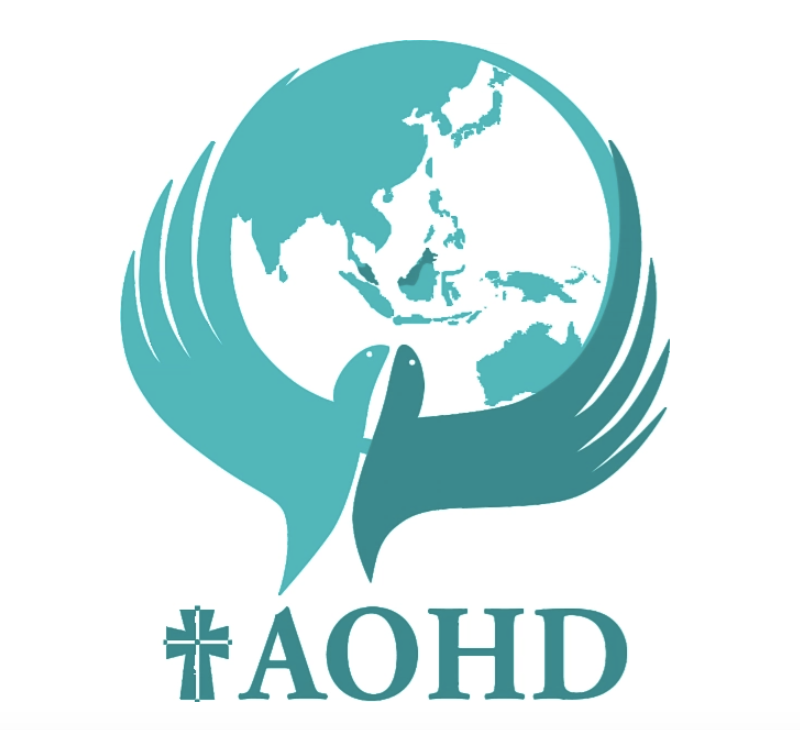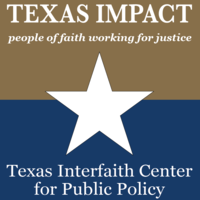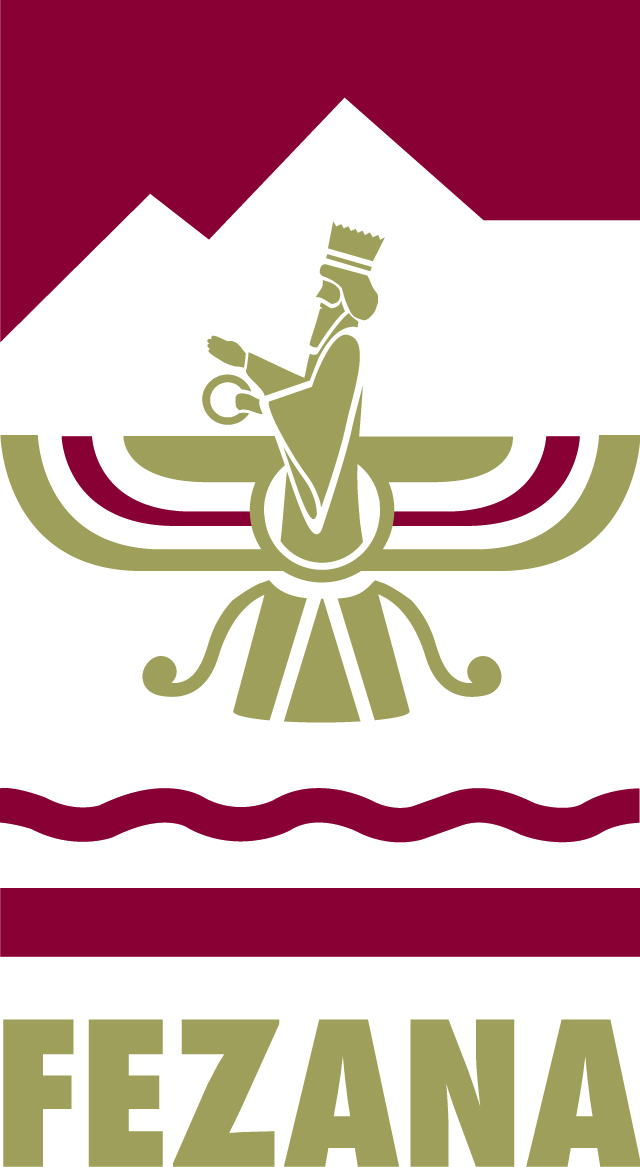Search
130 items
-
How Religion Influences Our Relationship With the Environment
The article shows how religious change can effect trends in the environment and how it can produce better environmental conditions attitudes. It lists statistics on which countries have certain environmental issues and how religion may play a role in certain situations. -
Engaged Organizations: Global Oneness Project
The Global Oneness Project was founded in 2006 as an initiative of Kalliopeia Foundation, and is focused on education aimed a planting seeds of empathy, resilience, and a sacred relationship to our planet. They are passionate about the power of stories and offer a rich library of multimedia stories comprised of award-winning films, photo essays, and essays as well as companion curriculum and discussion guides focused on world culture, social justice and sustainability. -
Environmental Stewardship
This book goes into detail about how the Christian religion goes about environmental stewardship. They look at how bible passages talk about preserving the Earth and the morals we should have surrounding it. It dives deep into how science interacts with human interaction with the Earth and the damage that we have done to Earth, as well as what we should do to correct ourselves. -
How Buddhist monks in Ladakh are fighting climate change
Buddhists Monks in the Himalayas are taking a stand to climate change. On Earth Day 2018, thousands of people came together in the village of Yerat to plant trees. The region is rapidly losing glaciers, causing a shortage in water supply to the villages in the area who rely on snowmelt for water. The volunteers were inspired to participate due to their devotion to His Holiness Kyabgön Chetsang Rinpoche and his vision for "a more verdant and organic Ladakh." -
Seeing true nature: Buddhism and the environment
John Worthington-Hill describes how Buddhism can encourage environmental awareness and sustainability. Embracing individuality is our disconnection from the natural world. In order to live in unity with the earth, we must find the 'middle way' (a buddhist morality based on self-discipline). "Self-centeredness is the great illness from which all imbalance, insensitivity and abuse ultimately stem – an illness directly linked to the Buddha’s ‘three poisons of greed, ill-will and delusion’. These poisonous mentalities seep into the collective consciousness and are instilled in the norms and structures of culture and society, helping to direct how politics and economics deal with the environment." "Environmental destruction is therefore an outer manifestation of an inner affliction. If our thoughts are polluted, then our actions will be polluted too, and so will their consequences." -
Environmental Stewardship and Conservation
An article under the Mormon Newsroom from the official website of The Church of Jesus Christ of Latter-day Saints that explains the Church teachings and stance regarding environmental stewardship and conservation. The article also links other Church video resources, as well as a few articles, resources, and a book titled, “Stewardship and the Creation: LDS Perspectives on the Environment”. The book is a compilation of 17 essays that aim to inspire Latter-day Saints to strongly consider the importance of being environmental stewards and protecting God’s creations. -
GOP Rep. Mike Simpson: "It’s my party, and I’ll fight climate change if I want to"
An article published on Grist.org that covers Congressman Mike Simpson's views on salmon conservation. Simpson's statements are noteworthy for sustainability and religion as he is going against Republican party views by acknowledging an issue with climate change and the environment with his religious views. It is reported that his speech was obviously fueled by a spiritual obligation to preserve salmon as he describes salmon as incredible God created creatures and that their cycle of life should not be messed with. It is also important to note he was already elected for his 11th term in the house, so it is less likely that his more left leaning statements come from a desire to secure votes. -
Overpopulation and the Lifeboat Metaphor: A Critique from an African Worldview
Many scientists have warned that the earth is nearing overpopulation or has already reached its carrying capacity. Garret Hardin proposed the lifeboat ethics metaphor to address this crisis and proper resource distributions. Okyere-Manu comments that this metaphor does not take into account the African political and cultural worldview. Hardin's metaphor is also reliant on inequality which disproportionately affects vulnerable communities. -
Himalayan Institute
Founded in 1969 by the great teacher and humanitarian, Swami Rama, the Himalayan Institute acts on the basis of yoga tradition and Eastern spirituality. Through the living connection to an ancient wisdom tradition of the Himalayan Masters, and the guidance of spiritual head Pandit Rajmani Tigunait, the Himalayan Institute seeks to serve communities across the globe of those who seek to live their spiritual values. The institute provides resources for anyone seeking spiritual wellness such as yoga and meditation training, local retreats and seminars, and domestic and international excursions, frequently taking the form of a trek through the Himalayas. The Himalayan Institute strives for sustainable living in partnership with the community in Honesdale and also in their projects in India and Africa- providing sustainable living, jobs, and farming in several different communities. -
How to Green your Parish
This article is about the importance of parishes to participate in environmentally sustainable actions based on Pope Francis’s Laudato Si’. It encourages parishes to strive to become more eco-friendly by taking work together as a community and focusing on change one issue at a time. The article focuses on three main areas: reducing the parishes greenhouse gas, sustaining food and land use, and preserving water. -
The Wisdom of Houseplants
There has been a recent rise in the popularity of houseplants. This resource relates aspects of tending to houseplants to different ways you can be more mindful about your own life. Through caring for the houseplants, this web page reminds you to be adaptable, to be patient, and to expand yourself. While also additionally reminding the reader that letting go and paying attention to your physical health are both key in positive personal growth. -
Dalai Lama's 10 Rules for Success
This video is the Dalai Lama speaking of how to calm ones mind as well as how to connect with the universe through inter connection of self and creation. -
Indigenous peoples and local communities offer best hope for our planetary emergency
Indigenous peoples steward 80 percent of the world’s remaining biodiversity, yet their voices are often excluded from decision-making. Moreover, such environmental defenders remain a vulnerable group that is troubled by intimidation and torture. In this article, the authors cover a few organizations, such as Nature for Life Hub and Youth4Nature, established to empower and defend the voices of indigenous peoples, local communities, and the youths. -
Muslims for Progressive Values
MPV (Muslims for Progressive Values) establishes and nurtures vibrant progressive Muslim communities. We do this by creating opportunities for religious discourse, volunteer and community activities, and cultural events bringing together the arts, spirituality, and social activism.
Since our inception, we have secured DPI and ECOSOC Special Consultative Status at the U.N., and a founding member of the Alliance of Inclusive Muslims, or AIM, an umbrella organization spanning 13 countries and 17 cities.
MPV is a progressive Muslim voice on contemporary issues. We voice our perspectives with policy briefs, by participating in civil discourse, engaging with the media and government entities, and by partnering with both Muslim and non-Muslim progressive organizations.
MPV promotes theologically-sound frameworks for Islamic liberalism. We seek to reinvigorate the Islamic tradition of ijtihad (critical engagement and interpretation of sacred texts) and intellectual discourse. We do this by collaborating with religious scholars and developing position papers on theological issues that are accessible to a wide audience.
Muslims for Progressive Values has been in existence since 2007. Quietly and diligently, we have been building our progressive community, one city at a time, and now one country at a time. Since its inception, MPV has expanded to include communities in Los Angeles, San Francisco, Washington DC, Atlanta, Columbus (OH), New York, Chicago, Boston, Minnesota and The Netherlands. -
Applying the hard lessons of coronavirus to the biodiversity crisis
In this article, Jamison Ervin, Manager of Nature for Development at UNDP, summarizes key lessons we have learned during the Covid-19 pandemic and how these can be applied to environmental protection efforts. -
Nature-Based Solutions Database
As a part of the Equator Initiative and the UNDP (United Nations Development Programme), the Nature-Based Solutions Database connects communities through sharing thousands of viable eco-solutions from 500+ communities across five continents.
Explore the Solutions Database to learn how outstanding local communities and indigenous peoples around the world are making possible the achievement of the UN Sustainable Development Goals through nature-based actions.
-
Profile: Jerry Freewalt
Jerry Freewalt is Director of the Office for Social Concerns of the Catholic Diocese of Columbus, Ohio. In this capacity, he serves as an educator and advocate to further the understanding of the Church’s social justice teachings. Jerry joined the office in 1995 as the respect life coordinator. Jerry also administers the respect life program, parish social ministry, rural life, jail and prison ministry, advocacy for persons with disabilities, and other education and advocacy efforts. -
Let's Talk Faith and Climate: Communication Guidance for Faith Leaders
Let's Talk Faith and Climate: Communication Guidance for Faith Leaders is designed to be useful to both experienced and novice climate change and faith communicators. This guide synthesizes the latest academic research and message testing on climate communications from across the social sciences into a practical guide to support meaningful discussions on climate change and faith among individuals and groups.
This guide offers tips on how to initiate new conversations with the faithful, how to create one’s own successful, value-based messages, and how to utilize specific wording that has been tested for its ability to bring people together regarding climate issues. Additionally, this document provides guidance on how to more deeply integrate creation care concerns into one’s own organization, ministry, or denomination.
This, along with the many resources offered by ecoAmerica’s
Blessed Tomorrow program, will allow faith leaders to become as adept at talking about climate change as they are at inspiring others to act on behalf of our shared future. -
Mercury Pollution a Concern of Evangelical Environmental Network
This article talks about mercury pollution and the pressing issues in need of attention and advocacy. The pro-life evangelicals have been pushing for more restrictions and regulations relating to mercury. This article intends to show how mercury poisoning hurts human lives and its different aspects that have long been overlooked. -
Columban Center for Advocacy and Outreach
The Columban Center for Advocacy and Outreach (CCAO) was founded in 1985 as the national advocacy office for the Missionary Society of St. Columban in the United States.
CCAO serves as the line of communication between Columban missionaries on the ground and policy-makers in Washington, D.C. Their mission is to work towards a more just, peaceful, and environmentally sustainable world by engaging in the political process guided by our faith and the Gospel. They work for structural change for the poor and marginalized populations Columbans serve around the world. Moreover, they advocate for policies and structures that bring society and the world into the right relationships with all of God’s Creation.
CCAO follows Catholic Social Teaching as their lens to engage in legislative advocacy and community engagement. -
AOHD (Archdiocesan Office for Human Development)
AOHD promotes activities concerning charity, integral human development, justice and peace within the Catholic Church's Kuala Lumpur Archdiocese. It operates under the purview of the AOHD Secretariat and Board of Management. -
Texas Impact and Texas Interfaith Center for Public Policy
Texas Impact exists to put faith into action. They equip faith leaders and their congregations with the information, opportunities, and outreach tools to educate their communities and engage with lawmakers on pressing public policy issues. They are an interfaith group that works together on issues such as racial discrimination, climate change, economic justice, and human rights that impact the most vulnerable people in our communities.
The Interfaith Center is Texas Impact’s 501(c)(3) research and education partner. The Interfaith Center’s board includes thought leaders; government affairs professionals; public servants; and communications experts. They provide the political insight and guidance that help Texas Impact offer clear, relevant, information that faith communities need to be effective advocates. -
Conference of the Parties (COP)
The COP is the supreme decision-making body of the Convention. All States that are Parties to the Convention are represented at the COP, at which they review the implementation of the Convention and any other legal instruments that the COP adopts and take decisions necessary to promote the effective implementation of the Convention, including institutional and administrative arrangements. -
Plant with Purpose
Plant With Purpose’s programs equip farming families around the world to increase farm yields, heal damaged ecosystems, improve nutrition, and increase household savings and opportunities. Always standing with the world's most vulnerable populations, this integrated approach solves two major issues facing the world today: environmental degradation and rural poverty.
You can plan a tree or fundraise in partnership with Plant with Purpose. -
Federation of Zoroastrian Associations of North America (FEZANA)
FEZANA is a non-profit religious group registered in the state of Illinois and formed to function as the coordinating organization for Zoroastrian Associations of North America. It serves as the coordinating body for 27 Zoroastrian Associations in the United States and Canada.
On this website, you can learn more about the community of FEZANA , Zoroastrianism, their sustainability reports and other social activities.



